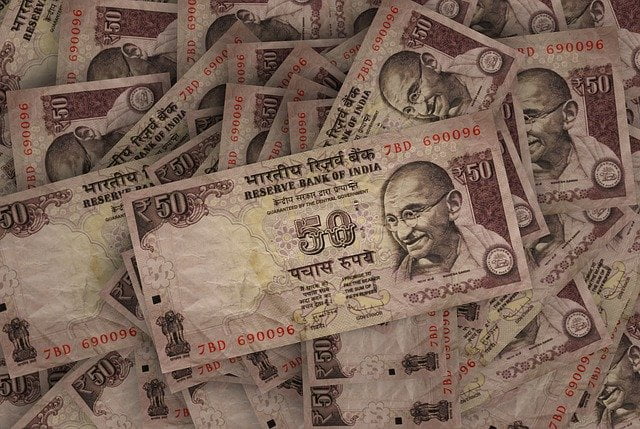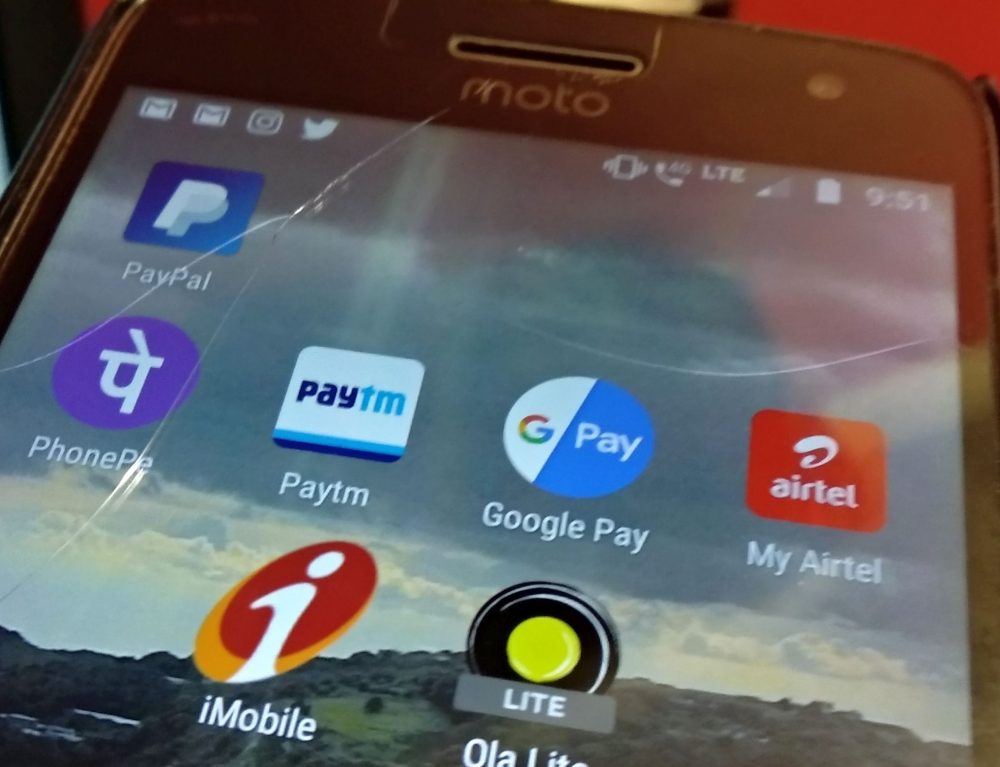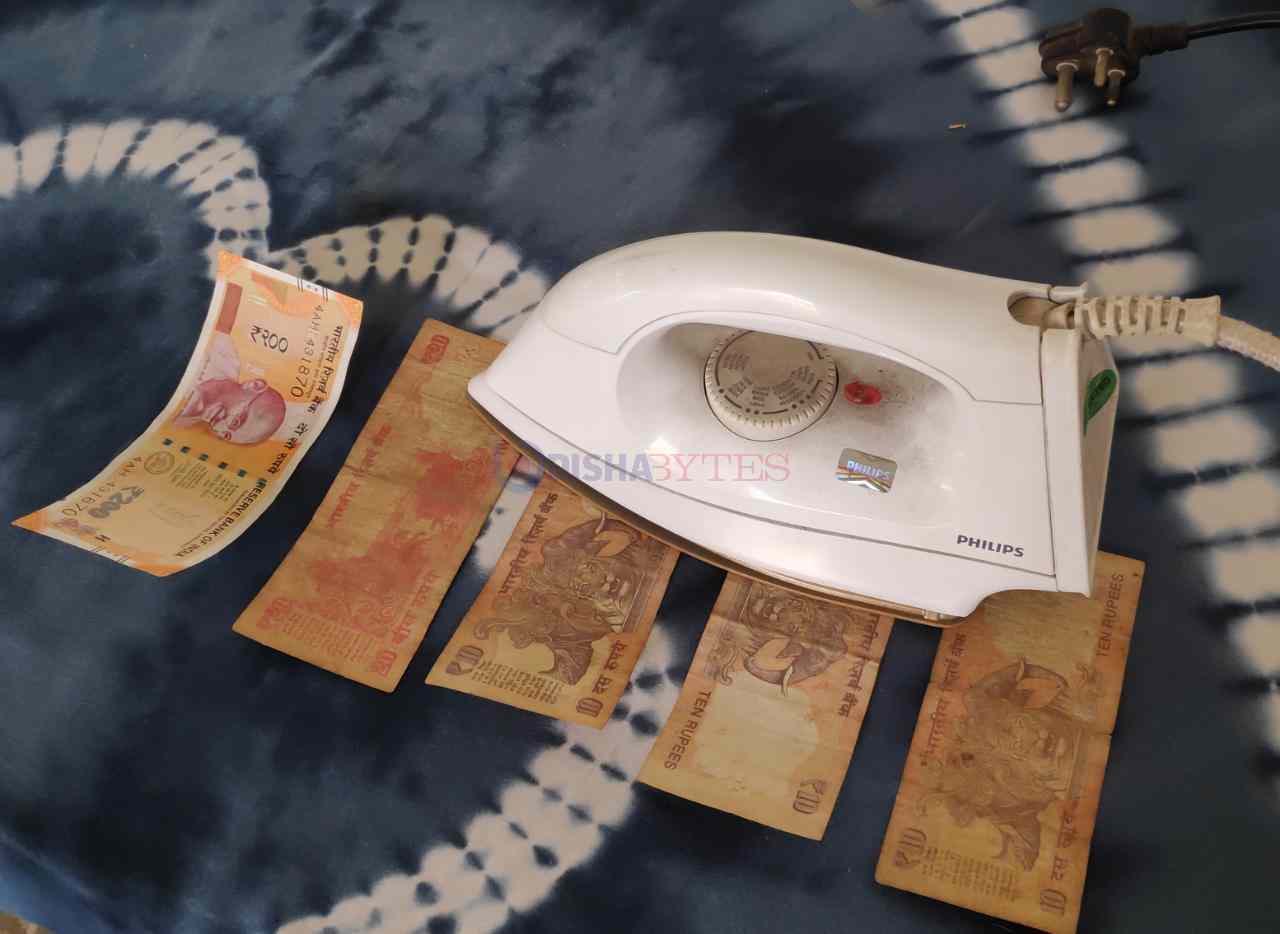Corona & Currency: Here’s How You Can Try To Avoid The Virus On Your Money

Bhubaneswar: Are you sure you have not just stored coronavirus in your purse or wallet or locker? An everyday interaction with money is inevitable. One of the aspects that many of us might be overlooking is the everyday use of currency notes and coins that we are exchanging. In the wake of COVID-19 cases having risen to nearly 400 in Odisha, one needs to take extra precautionary measures in one’s lifestyle to slow the spread and flatten the curve. Is it enough to stay indoors and not allow outsiders to enter our homes? Are we cautious about money being a source of the deadly virus?
Everyday at least one member of every family in Odisha goes to the market to buy essentials like grocery items, fruits and vegetables. They exchange currency notes and coins with the concerned vendors. How safe is that interaction? Are we sure that we are not getting the contagion? Are we sure the vendor in question is not carrying the virus? Some people are still dependent on domestic help for their essentials delivered to their house. Again, such people come into contact with the currency notes returned to them by their domestic help/s.
The Odisha government has also permitted offices to be opened from in orange and green zones and has allowed maximum 33 per cent staff presence in the red zones. It automatically warrants us to be more careful. Dealing with currency becomes unavoidable especially in sectors like banking.
“The currency notes are most vulnerable to health of people and are easy carrier of communicable diseases and as such a proper investigation is all the more needed and the Government should bring out a comprehensive policy to promote alternative mode of payments including digital payments coupled with incentives and benefits to encourage more and more people for adoption and acceptance of alternate mode of payments in the larger interest of health of the country,” Confederation of All India Traders (CAIT) told the Economic Times recently. Early March 2020, the World Health Organization (WHO) declared currency notes may be spreading coronavirus and suggested people to switch to digital payments.
The surface longevity of coronavirus is 24 hours, according to estimates made by experts. Then, what is the way out?
Some steps that can be adopted on an everyday basis to avoid the virus on your money:

Better to switch to digital payments: Wherever and whenever possible, use your ATM card or forms of digital payments to avoid the risk of getting infected from the virus. The ATM card can be sanitised after use.
Switching to polymer notes: The Confederation of All India Traders has suggested the Indian Government to switch to polymer notes (currency made from synthetic polymer) like in UK, Australia and Canada. Apart from durability, they can provide greater safety especially in COVID-19 stint. However, it would be doubly expensive than our paper notes produced in India.
But with these two options not appearing fully practical in the immediate phase, we can possibly adopt these measures:
Wearing gloves: One has to make it a mandatory practice to wear gloves while coming into contact with money in any form. Make sure you lend a pair of gloves to the family member/ domestic help going out to buy essentials.

Iron your notes: You thought you could only iron your clothes? You can iron paper too. So, why not your currency? Place an old newspaper over your notes arranged on your iron table and dry press them in low temperature (low enough to heat them yet not high enough to burn them). Some researches claim coronavirus cannot survive beyond 58 degree Celsius. We cannot iron the notes at such a high temperature without destroying them, but heating them a bit definitely helps.
Have a separate drawer for your money: Currency notes and coins during these COVID times can be stored separately in a drawer that does not contain other things. Do not keep your money in your cupboard for clothes, books or other things. This automatically arrests the virus and keeps your money in quarantine for 24 hours. You are less likely to open that drawer for obtaining other items of use.

Sanitise your coins: At the end of the day, you can collect all coins in your money drawer (that you have created specifically for it) and put them in a mug filled with water and 1 cap of disinfectant. Wash properly and then air dry and store them in a coin jar in your money drawer.
At office: If someone hands you some money at office, do not take it without using a hand sanitizer on your palms and fingers first, if you do not have access to gloves there. Have a separate pouch in your briefcase/ bag to carry the money back home to go ahead with all the above described procedures.
Taking precautionary measures in case of your money not only saves you from the virus, but also goes a long way in making you organised about your money arrangement at home.
Quite literally and figuratively, if you take care of your money, money will take care of you.
Also Read: DRDO Develops Machine To Sanitize Electronic Gadgets & Currency Notes

Comments are closed.